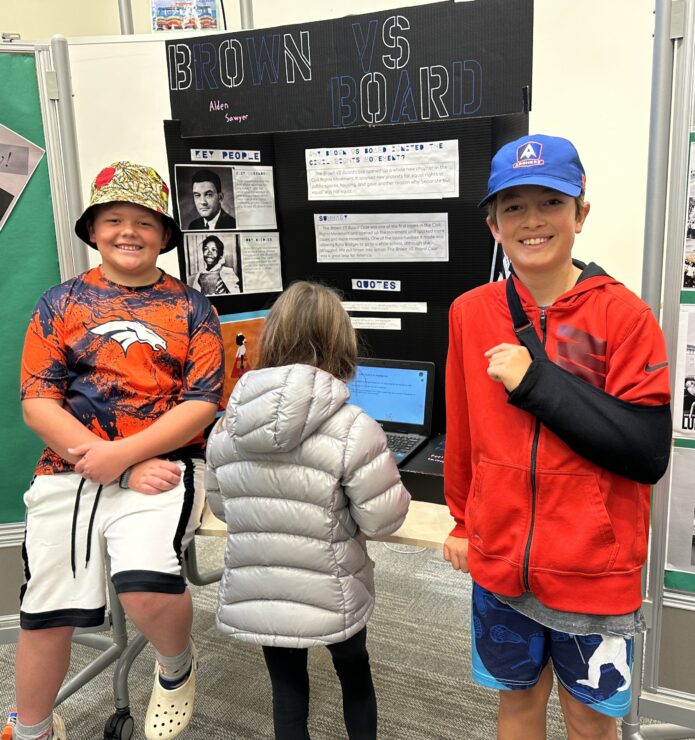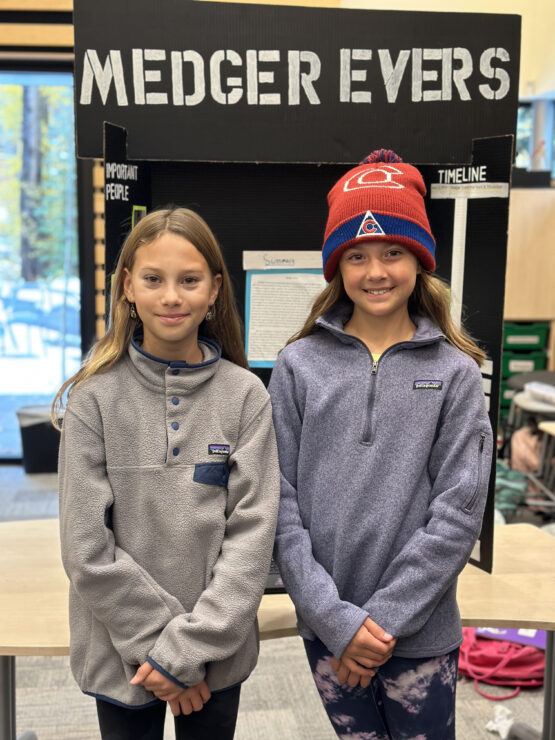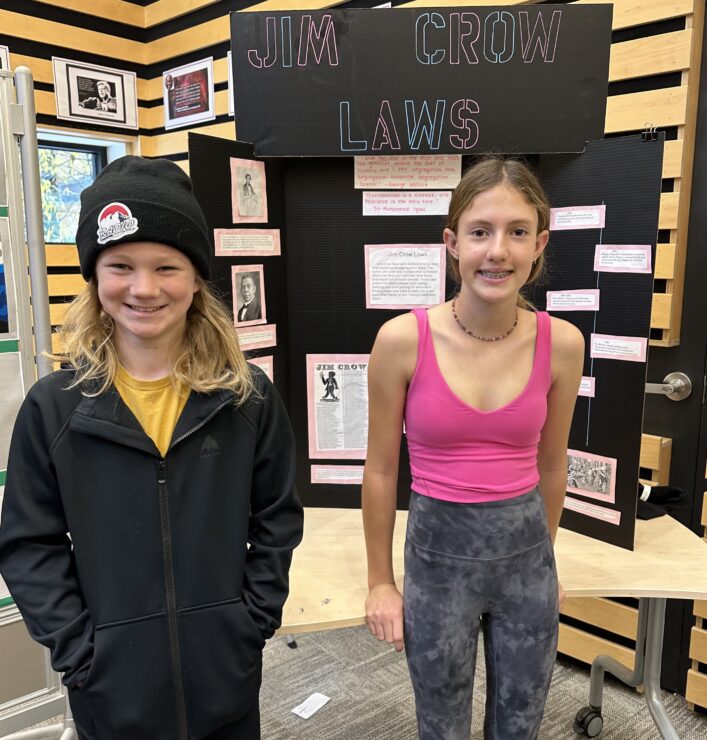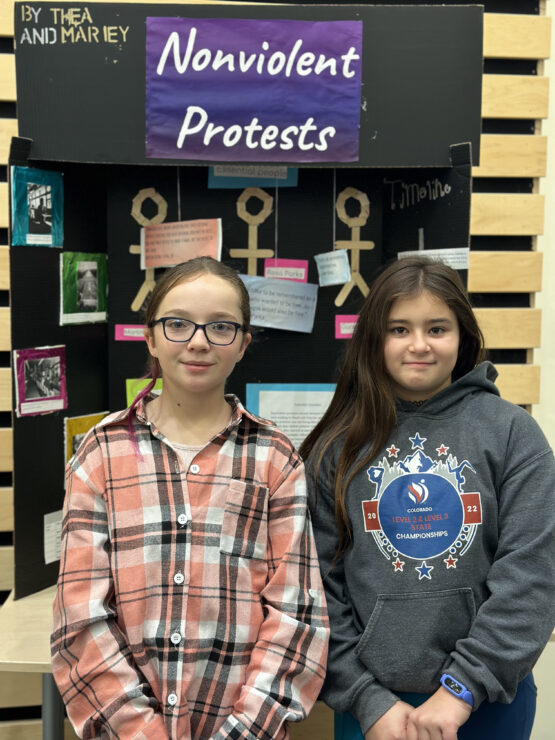Stories
Sixth Grade Humanities asks and answers essential questions
October 17, 2023
The Sixth Grade Humanities curriculum at Aspen Country Day School is carefully designed to cultivate critical thinking and literacy skills in students while immersing them in the tapestry of our world and its rich history. Now in its second year at ACDS, Humanities combines the traditional disciplines of English and history into a singular class that captures the social studies and English benchmarks through engaging thematic units. Students gain a deeper understanding of our past while examining how it shapes the present and future.


The foundation of the Sixth Grade journey lies in novels students read throughout the academic year that serve as the pillars of four distinct themes: Home, Family, Freedom, and Creativity. The Watsons Go to Birmingham – 1963 is the book used as an accompaniment to the first unit, Innocence to Experience, and aims to help students answer three fundamental questions: How do personal and historically significant events shape an individual’s worldview? How do family roles and dynamics influence one’s identity? And in what ways does the transition into adulthood cause a loss of innocence?
According to ACDS Humanities teacher Zeke Tiernan, The Watsons Go to Birmingham is more than just a literary work—it also provides actual historical facts about the era to shed light on the pervasive bias of that time.
“The book brings up the unrest and struggle of segregated America in the early 1960s,” Zeke said, “and this gives them context about what really happened. It illustrates the level of prejudice and racism through real examples like the Montgomery bus boycott and the 1963 March on Washington.”


The culmination of this year’s unit was an inaugural student-generated civil rights exhibition. Sixth Graders meticulously analyzed the historic context and setting of The Watsons Go to Birmingham – 1963, bringing together the literature and history to add a layer of richness to the learning experience. After researching a variety of topics relating to civil rights, they worked with partners to research and present their findings.
“It was really fun because it was the first time I’ve ever answered an essential question instead of just writing a summary,” said Sixth Grader May H. “It made me think harder this way.”
Zeke said that kind of critical thinking is key to building a bigger picture around a novel. “The history comes to life along with the reality of what actually occurred in the world,” he said. “The learning is on a much deeper level.”